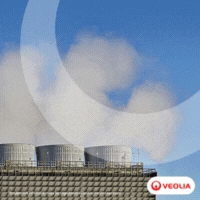Report: Industry Faces Existential Crisis
06/12/2025 - Europe’s steel industry could be wiped out due to the U.S.’s Section 232 tariffs increase, high energy costs and the influx of cheap Chinese steel, the Guardian reported thyssenkrupp said.
At a European Policy Centre conference in Brussels, board member of thyssenkrupp and chief executive officer of thyssenkrupp Materials Services Ilse Henne was asked if she feared a wipeout, to which she replied, “Of course.”
“Steel is at the beginning of the value chain, so you create a lot of instability for all these supply chains that get disrupted that now all of a sudden have to deal with much more expensive steel,” Henne continued.
Steel and aluminum are foundational industries, affecting everything from submarines, aircraft and cars to stainless steel cutlery, food mixers and joists in housing, reported the Guardian.
“If the European steel industry disappears, we will have a lot of collateral damage. A weak European steel industry is not only a weak European steel industry. It also puts all the other steps in the industry and the value chain in danger,” said Henne.
Henne called on Europe to step in and save the sector since it is fundamental to military security, is a large employer and if it fails, the continent would be left reliant on the U.S. and China for key manufacturing materials.
The Guardian reported the European Commission is in talks with Beijing regarding the growing problem of cheap Chinese steel imports, particularly regarding the oversupply of cars and fast fashion.
Henne said Russian steel is also appearing on the market at a rate of 3-4 million metric tons annually, just a fraction below the 3.8 million metric tons the entire EU exports to the U.S.
“Following the 50% tariff increase, all U.S. steel producers have immediately bumped up their prices. So the cost of manufacturing has gone up,” Henne said. She went on to say the impact could be limiting the U.S.’s growth potential.
Eurofer reported that the U.S.’s Section 232 tariffs dealt a “severe blow” to recovery expectations and has called on the EU to bring in emergency measures to help save the industry. Henne agreed, calling on the European Commission to ensure hydrogen comes on stream at a competitive price and to reduce the reliance on oil and gas fueled furnaces.
“Reducing the tariffs would be a good thing, but equally important for us is competitive energy pricing,” Henne said.
“Steel is at the beginning of the value chain, so you create a lot of instability for all these supply chains that get disrupted that now all of a sudden have to deal with much more expensive steel,” Henne continued.
Steel and aluminum are foundational industries, affecting everything from submarines, aircraft and cars to stainless steel cutlery, food mixers and joists in housing, reported the Guardian.
“If the European steel industry disappears, we will have a lot of collateral damage. A weak European steel industry is not only a weak European steel industry. It also puts all the other steps in the industry and the value chain in danger,” said Henne.
Henne called on Europe to step in and save the sector since it is fundamental to military security, is a large employer and if it fails, the continent would be left reliant on the U.S. and China for key manufacturing materials.
The Guardian reported the European Commission is in talks with Beijing regarding the growing problem of cheap Chinese steel imports, particularly regarding the oversupply of cars and fast fashion.
Henne said Russian steel is also appearing on the market at a rate of 3-4 million metric tons annually, just a fraction below the 3.8 million metric tons the entire EU exports to the U.S.
“Following the 50% tariff increase, all U.S. steel producers have immediately bumped up their prices. So the cost of manufacturing has gone up,” Henne said. She went on to say the impact could be limiting the U.S.’s growth potential.
Eurofer reported that the U.S.’s Section 232 tariffs dealt a “severe blow” to recovery expectations and has called on the EU to bring in emergency measures to help save the industry. Henne agreed, calling on the European Commission to ensure hydrogen comes on stream at a competitive price and to reduce the reliance on oil and gas fueled furnaces.
“Reducing the tariffs would be a good thing, but equally important for us is competitive energy pricing,” Henne said.



.jpg?lang=en-US&ext=.jpg)

